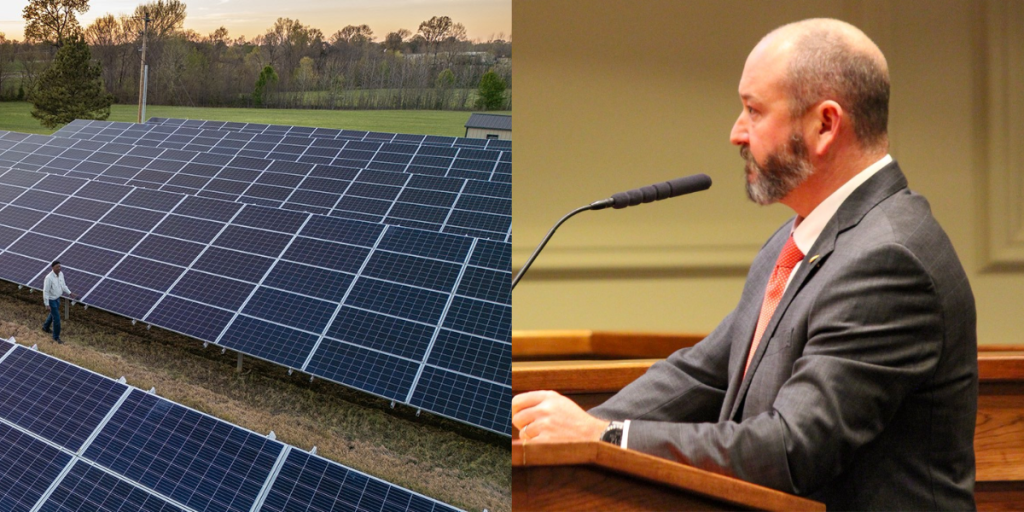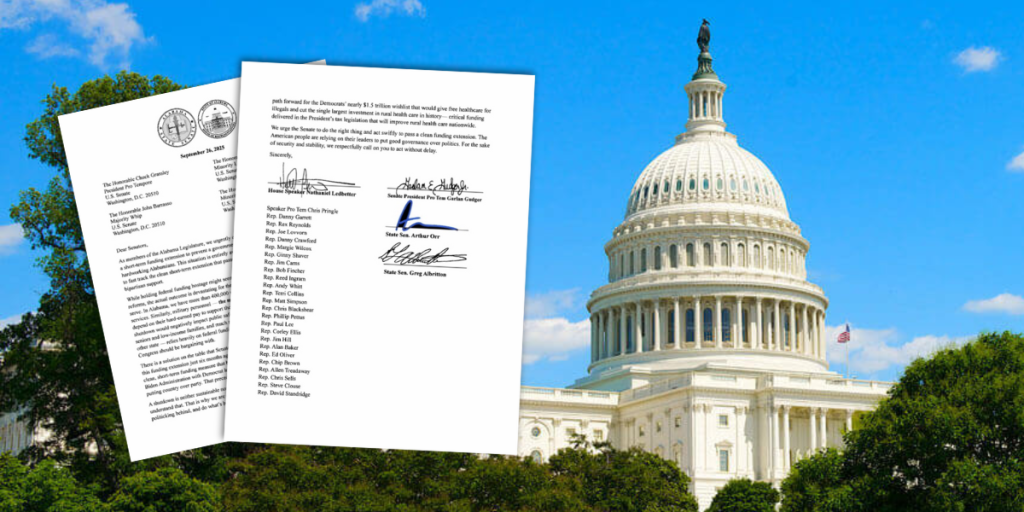In February, State Representative Matt Simpson introduced legislation that if passed would’ve replaced the current Alabama ethics code guiding state legislators with one that establishes higher penalties for violations.
HB227 passed the House by a vote of 79-9, but did not come to a scheduled vote in the Alabama Senate Judiciary Committee on the final day of the 2024 legislative session.
Last Friday, Simpson spoke with Midday Mobile to discuss his reform proposal and why he believed it was necessary in 2024.
“I wanted the bill to pass this year. I’m not gonna lie,” he said. “I was hopeful the bill would pass this year. But you know, something this big takes a long time.”
Simpson commended State Sen. Sam Givhan (R-Huntsville) for his work on moving the bill through the Senate. However, he did say that there was a bit of confusion as to who would handle the bill in the upper chamber.
RELATED: Ethics reform bill remains on the table in final days of legislative session
Simpson pushed back on the idea that HB227 would soften ethics laws and their corresponding violations.
“It’s so easy to turn up and say, Well, this is tightening the ethics law or this is weakening the ethics law. That’s the soundbite that people were coming against were saying, this weakens the ethics now Alabama.”
“There couldn’t be anything further from the truth in my opinion for what we were trying to do and what the goal is, and what we’re trying to do from this bill,” he said. “We just tried to say, these are, what the lines are, these are where you can and can’t go. You know, so many people are saying well it makes things that are illegal now they will be legal under this new bill. Well, they’re things that people aren’t prosecuting for anyway.”
He offered a commonplace example of what could be considered an ethics violation under today’s code, making the case for the inaccessibility for may state employees to understand the ethics laws they’re governed under.
RELATED: Rep. Simpson makes case as Alabama House decides on ethics reform
“And you’ve got things that come into effect like I was walking around earlier today, my father in law here he’s a vendor. One of the things here. You talk about some of the laws and how they affect people. If somebody takes my father in law out to lunch, that could be an ethics violation that I would be punished for. That I would be facing a Class B felony, because someone took my father in law out to lunch. That doesn’t make any sense to me. That’s nonsense. The laws are there as they are written if it’s an intentional violation, it’s a Class B felony. If it’s an unintentional violation, it’s a Class A misdemeanor.”
“There’s nothing to talk about intent.”
RELATED: Ethics reform bill remains on the table in final days of legislative session
Simpson expressed his full support for tougher punishments of elected officials who violate the ethics code.
“You want people to know this is what you can and can’t do. If you cross that line. If you go beyond what you can do, then we’re coming for you and we’re coming after you. We’re coming hard after you. That’s perfectly fine by me. I think there should be prosecutions. These are people that are given the public trust.”
“There should be high sanctions and punishments to go after people that violate the public trust.”
Austen Shipley is a staff writer for Yellowhammer News.













